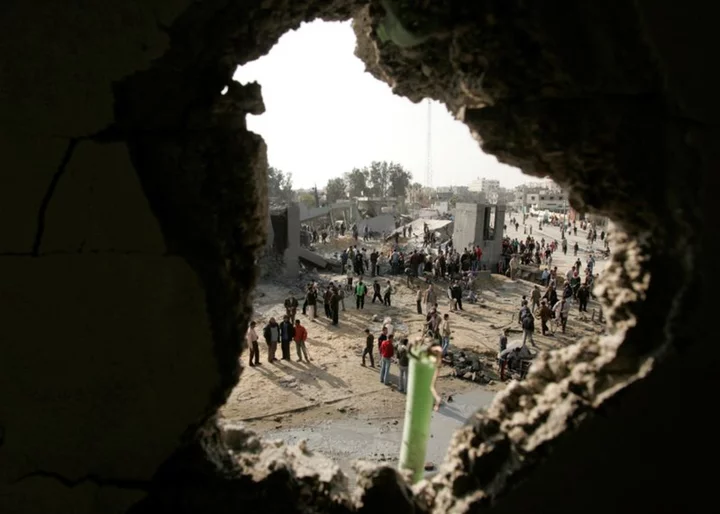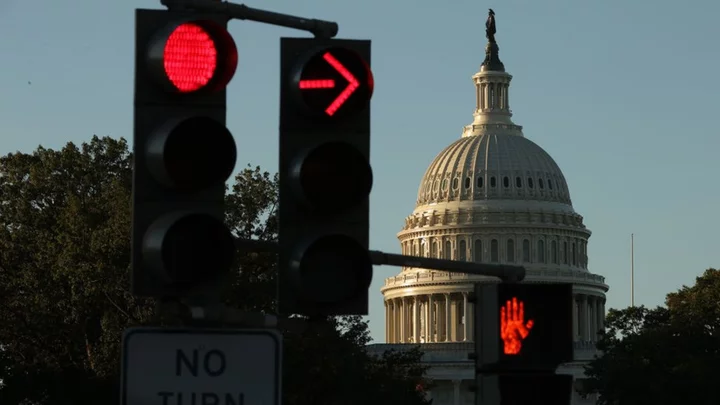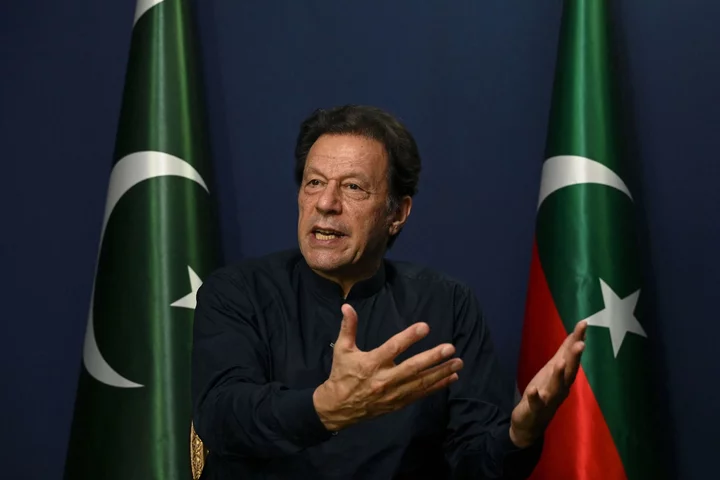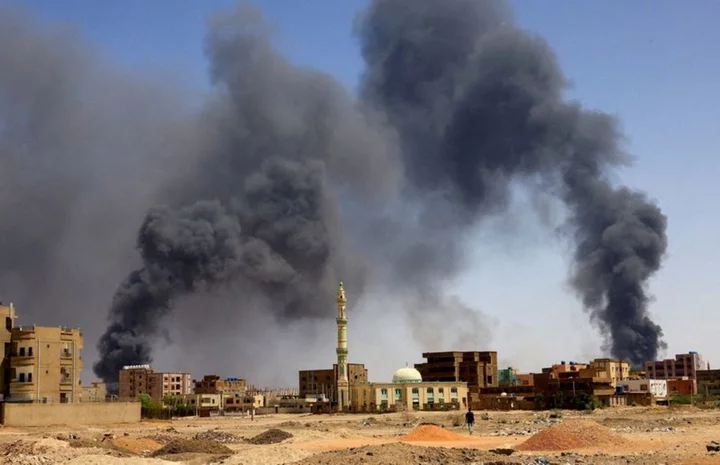By Dan Williams, Nidal al-Mughrabi and Nandita Bose
JERUSALEM/GAZA/WASHINGTON Israel vowed to escalate its response to an attack by the Palestinian militant group Hamas with a ground offensive, while U.S. President Joe Biden pledged support for Israel and issued a warning to anyone who might seek to take advantage of the situation.
The Israeli military said dozens of its fighter jets struck more than 200 targets overnight in a neighbourhood of Gaza City that it said had been used by Hamas to launch its unprecedented wave of attacks.
Gaza's health ministry said at least 900 people have been killed and 4,600 wounded in the crowded coastal enclave.
On Saturday, Hamas gunmen from the Gaza Strip rampaged through parts of southern Israel, in the deadliest Palestinian militant attack in Israel's history.
Israeli public broadcaster Kan reported the weekend death toll had reached 1,200.
The victims were overwhelmingly civilians, gunned down in homes, on streets or at an outdoor dance party. Scores of Israelis and others from abroad were captured and taken to Gaza as hostages, some shown on social media being paraded through the streets.
Hamas militants holding Israeli soldiers and civilians hostage on Monday threatened to execute a captive for each home in Gaza hit without warning, but as night fell on Tuesday there was no indication they had done so.
Israeli Defence Minister Yoav Gallant, speaking to soldiers near the Gaza fence, said: "Hamas wanted a change and it will get one. What was in Gaza will no longer be."
"We started the offensive from the air, later on we will also come from the ground. We've been controlling the area since Day 2 and we are on the offensive. It will only intensify."
Israel withdrew troops from Gaza in 2005 after 38 years of occupation, and has kept it under blockade since Hamas seized power there in 2007. The siege it announced on Monday would keep out food and fuel.
On Israel's northern border, a salvo of rockets was fired from southern Lebanon towards Israel, prompting Israeli shelling in return, three security sources said.
More shells launched from Syrian territory landed in open areas in Israel, prompting Israel to return fire, the military said, further raising fears that the violence could lead to a wider war.
Sirens warning of incoming rocket fire blared overnight in Israeli communities near the Gaza border.
At the White House, Biden called the Hamas attacks "an act of sheer evil" and said Washington was rushing additional military assistance to Israel, including ammunition and interceptors to replenish the Iron Dome aerial defense system. He called for Israel to follow the "law of war" in its response.
He told reporters the United States had "enhanced our military force posture in the region to strengthen our deterrence," including by moving an aircraft carrier strike group and fighter aircraft.
"Let me say again to any country, any organization, anyone thinking of taking advantage of the situation, I have one word: don’t," said Biden, in an apparent reference to Iran and its proxies in the region.
U.S. officials say they do not have evidence Iran orchestrated the attacks, but point to Iran's long-term support for Hamas.
Biden also despatched his top diplomat Antony Blinken to Israel, who will deliver "a message of solidarity and support," State Department spokesperson Matthew Miller said.
Israeli Prime Minister Benjamin Netanyahu's right wing coalition and opposition leaders were close to forming an emergency unity government.
A meeting between Netanyahu and former Defence Minister Benny Gantz was scheduled for Tuesday but was delayed to Wednesday.
'NO PLACE IS SAFE'
Israel's military said its forces, backed by a helicopter and drones, clashed with militants inside Israeli territory late on Tuesday.
Soldiers killed three militants in the incident in Ashkelon, near an oil terminal located just over 10 km (6 miles) from the Gaza Strip that has been shut in the wake of the attacks, it said.
Palestinian media said Israeli airstrikes hit homes in Gaza City, the southern city of Khan Younis and in the Bureij refugee camp in central Gaza.
One home struck belonged to the father of Mohammed Deif, the leader of Hamas' armed wing in Gaza, reports said. Deif's brother and other family members were killed, according to the reports.
Residents appealing for help on social media said many buildings had collapsed, sometimes trapping as many as 50 people inside with rescue workers unable to reach them.
The United Nations said more than 180,000 Gazans had been made homeless, many huddling on streets or in schools.
At the morgue in Gaza's Khan Younis hospital, bodies lay on the ground on stretchers with names written on their bellies. Medics called for relatives to pick up bodies quickly because there was no more space for the dead.
A municipal building was hit while being used as an emergency shelter. Survivors there spoke of many dead.
"No place is safe in Gaza, as you see they hit everywhere," said Ala Abu Tair, 35, who had sought shelter there with his family after fleeing Abassan Al-Kabira near the border.
Two members of Hamas' political office, Jawad Abu Shammala and Zakaria Abu Maamar, were killed in an air strike in Khan Younis, a Hamas official said.
They were the first senior Hamas members killed since Israel began pounding the enclave. Israel said Abu Shammala had led a number of operations targeting Israeli civilians.
The Palestinian Foreign Ministry said Israeli strikes had since Saturday destroyed more than 22,600 residential units and 10 health facilities and damaged 48 schools.
U.N. High Commissioner for Human Rights Volker Turk, who denounced the Hamas attacks, said: "International humanitarian law is clear: the obligation to take constant care to spare the civilian population and civilian objects remains applicable throughout the attacks."
Violence also flared in the occupied West Bank and in East Jerusalem, where Israeli police said they killed two Palestinians who shot fireworks toward officers on Tuesday night.
In the West Bank, 21 Palestinians have been killed and 130 injured in clashes with Israeli forces since Saturday, according to the Palestinian health ministry.
(Reporting by Dan Williams, Emily Rose, Henriette Chacar and Ari Rabinovitch in Jerusalem, Nidal al-Mughrabi in Gaza, Maayan Lubell in Kfar Aza, Steve Holland, Nandita Bose, Rami Ayyub and Daphne Psaledakis in Washington; Writing by Simon Lewis; Editing by Howard Goller, Lincoln Feast and Michael Perry)









